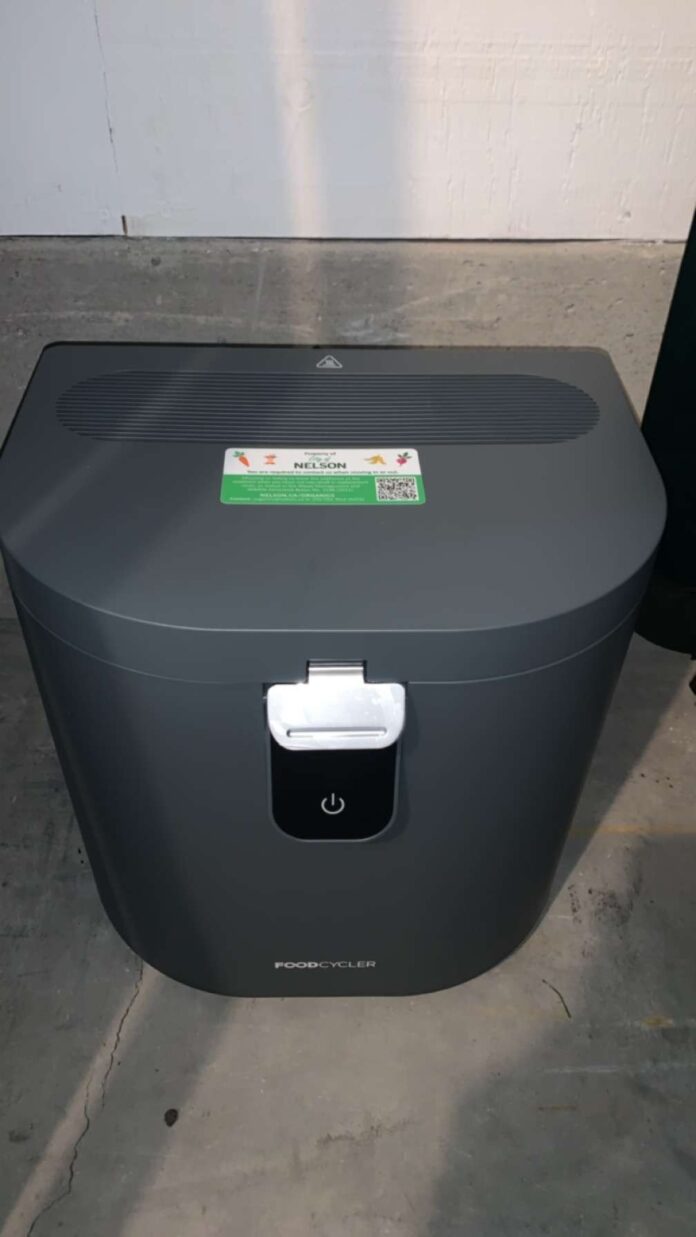Emily Mask, Climate Program Coordinator with the City of Nelson, said that a new survey gathering feedback on the City of Nelson’s organic waste diversion pilot program has received 400 positive responses.
In October 2023, the City of Nelson launched the three-year pilot program, which has seen 709 FoodCycler appliances distributed to residents in the pilot neighborhood of Fairview.
Now, the program is in data collection mode.
Mask said that she will be working closely with a third-party consultant who will develop a report that compares the pre-treatment method of organic waste with the traditional curbside approach, to offer a clear view of the program’s impact in the community.
After data is collected and studied, city staff will bring the information forward to City Council in the next few months to decide on the fate of a city-wide rollout.
Mask said so far, the pilot has received overwhelmingly positive reviews from participating community members.
“All we see is that residents are overwhelmingly positive about the program, and they are having satisfactory results from the program. They’re finding it really easy. Their waste management at home is a lot simpler, a lot less messy, and they’ve also seen a decrease in the amount of garbage they put at the curb and wildlife attractants in their backyard.”
Mask said the city has a repair fleet of about 10-15 units on stanby for those that break or need fixing, adding that most repairs have been minor so far and have only accounted for a small percentage of machines given out through the program.
“With any manufacturing, there’s a small percentage of units that have component issues, and we have a repair program, so those units get taken back, repaired, and reissued. The units that we have in fluctuation just keep getting reissued so they’re not nothing becomes e-waste.”
The program is not fully funded by the city, in fact, Mask explained that the major funder of the program is through the Federation of Canadian Municipalities Green Municipal Fund, with additional funding coming through the Columbia Basin Trust’s Climate Resilience Fund.
The city has also been monitoring the impact of running the appliance (which has a cycle between 3-10 hours depending on the contents) on residential power use. Mask said each unit uses about 1.5 kwh/ per cycle, and that there has been no fluctuation in energy consumption since the programs launch.
On April 15, the city opened its early adopters list to offer the remaining units that hadn’t been distributed in the pilot neighborhood to other community members.
Mask said the city has handed out machines to everyone who signed up for one, and there are still more available for those interested.
Despite some community skepticism, Mask said she and the city remain proud of their innovative approach to climate resiliency.
“As a first-of-its-kind program and then such an innovative project, especially in this time of climate adaptation, it’s crucial and natural to encounter some skepticism. However, even folks who were hesitant at first are enjoying the program.
We’re really proud of our approach investing in this research, project, and robust education program, and we believe that this will set us up with the best chance of success possible.”
Something going on in your part of the Kootenays you think people should know about? Send us a news tip by emailing [email protected].


